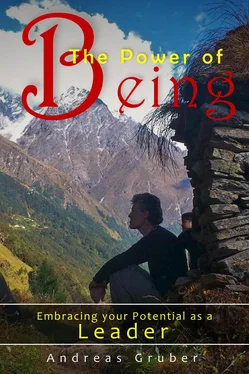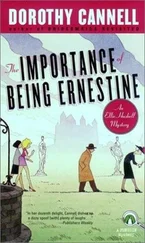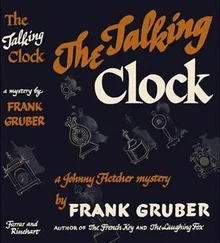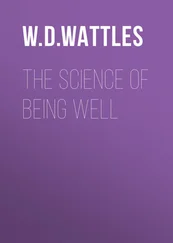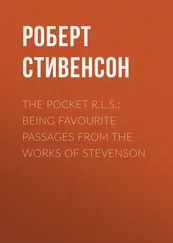What we represent without words, and silently stand for, is integrity, but also domination, if wisdom is missing.
4) I can only make a brotherly appeal to you, to reflect on your being, what you radiate unknowingly, what you represent silently, and stand for without words. Would you dare to try this path, as outlined in this book, you would never ask how to motivate, nor would you ponder on how to inspire. Every change takes courage and some initial effort, but once you experience the natural results, you'll never want to go back. You'll enjoy the ride. Don't worry if it's still somewhat abstract to you. Let yourself be moved and inspired as you keep on reading.
19 Failures and divine setbacks
When Thomas Edison invented the lightbulb, he tried out multiple ways, and he concluded that he had not failed, but just worked out many ways not to do it.
“ I have not failed.I've just found 10,000 ways that won't work.”
Thomas A. Edison
Many of our most prominent inventions were failures or byproducts, on the path to developing something else. That is the divine part of it. However, our fixed attention on a certain desired outcome tends to make us blind to what's happening in front of our eyes. Letting go of the outcome, and observing neutrally and attentively, seems to be one of the keys.
Often we stubbornly repeat the same action, over and over again, instead of observing attentively and then change the ingredients, factors or process, based on our findings. And at times trying to reinvent the wheel, instead of basing our work on previous results.
A serious inventor has more than creativity and brilliant ideas, he has excellent strategies for dealing with failure, and dogged stubbornness and blind hope are none of them.
How we usually deal with failure
Stubbornly repeating it, but with more intensity.
Ignoring our share of it.
Seeking a scapegoat, blaming others.
Ignoring failure altogether.
Not being able to talk about possible causes of a failure.
Not being open to alternative outcomes.
Potential failure makers, in the decision-making process
Seeking advisors who tell us what we want to hear.
Not involving people of the trade with practical knowledge.
Mainly hierarchical or aristocratic decision takers, top-down.
Basing decisions on thin statistics.
Excluding nay-sayers from the decisions.
Asking conditioned yes-sayers for their opinion.
Not giving time for objections or doubts to arise.
Not discussing the underlying assumptions we base our decisions on.
Choosing dates and times when opponents are not likely to be present.
Not being willing to scrutinize key factors.
Not involving scenarios.
Presenting everything as given facts, without nuances of validity.
Not involving the neutral view of outsiders.
Using only statistical material that is in our favor.
What I very rarely see is:
1 Presenting material, which is not in our favor to learn from.
2 Really wanting to know why customers or employees leave.
3 To utilize think tanks, but also to scrutinize the outcome constructively.
4 To make use of nay-sayers actively and constructively.
5 To check if our development fits into the chain of the standard customer, and not only considering the three favorite and best-known ones.
6 To ask specialists who don't believe in our idea, and use it as valuable feedback rather than critique.
Dealing with private setbacks and problems
When it comes to our private lives, years and even decades can pass before we finally work out some of our tedious failures and problems. Either we do not ask for help, or we go to people who are likely to tell us what we want to hear. Or we get a bunch of advice, but only note the ones that make sense to us. However, I think the most unproductive, yet common, is that we listen to people who either haven't got a clue or who have not mastered this themselves.
To get the moral opinion of somebody who has never had our problem, will not only prevent us from finding a solution, it will make us feel like underdogs.
When did you last follow or listen to advice that you genuinely didn't like?
This is my personal strategy to take decisions and solve problems:
I have good reasons to believe that nobody has all the facts, and subsequently nobody knows the full answer to my problem.
I believe there are three main types of advisors. 1) The experienced one, with practical knowledge in our field of interest. 2) The wise ones, with a considerable amount of life experience and practical wisdom, although they may not have experienced the same thing. 3) The moral preachers and book knowledgeable people, eager to give their opinion. 4) Family or close friends who obviously have our best interest in mind.
The first group is hard but not impossible to find. The second group takes real determination to get to. The third is available at every street corner but of very limited use, and finally the fourth being rather close.
Always ignore advice forced on you.But disregard those offering adviceonly if you understand that you must invite good advisors, forgetting your own opinion and the desired outcome.
Privately I would strive for category two, and compare that with category one and four. The advice from the different types has different functions for me. Group one that has experience is crucial, but since we are all so different, it may still not apply entirely. The wise one is precious because although he may not have experienced the same, he knows human nature and may sense my inclinations.
The family member who cares about me gives me a second or third opinion while my friends who truly care may tend to general advice. I would always look for an outsider’s view for comparison. It may be one of those above.
Asking a set of skilled questions, and making use of sensing and reflectionwith an open and curious mind, is a good foundation to solve a problem.
In the end, I may have consulted five people and made a list for each with ten points. So how do I know what's the solution for me? It is good to match these lists, but much more interesting to sense within, what resonates with me. However, this is not about liking or disliking. I have often experienced that when I hear something that is true for me, that it resonates with me in a direct way. It is like asking yourself the question, "what do I want, and what do I need?" It never fails. There are always two different answers, out of which one of them clearly comes from a source of wisdom within. A source we all have available. However, as in the case of our underlying assumptions, if we don't explicitly scrutinize and ask for them, they will remain hidden and unknown even to ourselves.
Assuming to know is shortsighted, being in love with our idea is non-reflected, forcing those two on others with willpower, is to waste time and destroy the spirit.
Конец ознакомительного фрагмента.
Текст предоставлен ООО «ЛитРес».
Прочитайте эту книгу целиком, купив полную легальную версию на ЛитРес.
Безопасно оплатить книгу можно банковской картой Visa, MasterCard, Maestro, со счета мобильного телефона, с платежного терминала, в салоне МТС или Связной, через PayPal, WebMoney, Яндекс.Деньги, QIWI Кошелек, бонусными картами или другим удобным Вам способом.
